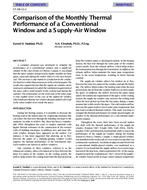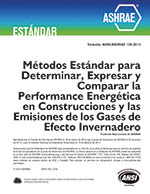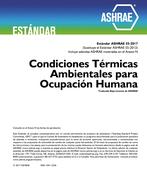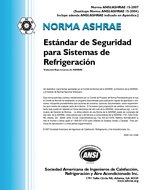Description
A computer program was developed to simulate the performance of a conventional window and a supply-air window in the cold climate of Ottawa, Canada. It was found that the latter window design lead to higher monthly net heat gains, especially during the winter when it is the most beneficial. This increase is due mainly to a reduction in the conductive heat loss rather than an increase in the solar heat gain. The results also support the fact that the supply-air window can be employed continuously to satisfy the ventilation requirement of the space with a small penalty in the cooling load during the summer. The temperature on the room side of the inner pane is only slightly lower in the case of the supply-air window, which indicates that the two window designs studied will result in the same comfort level inside the space.
Units: Dual
Citation: Symposium, ASHRAE Transactions, 1998, Vol 104, pt. 1A, San Francisco
Product Details
- Published:
- 1998
- Number of Pages:
- 10
- File Size:
- 1 file , 690 KB
- Product Code(s):
- D-7886




